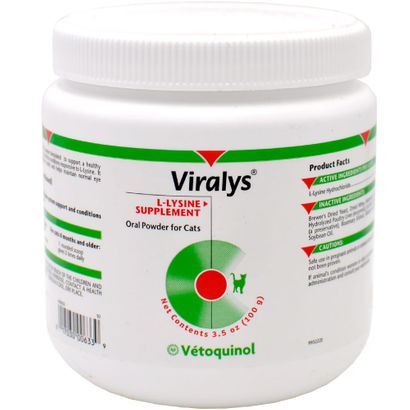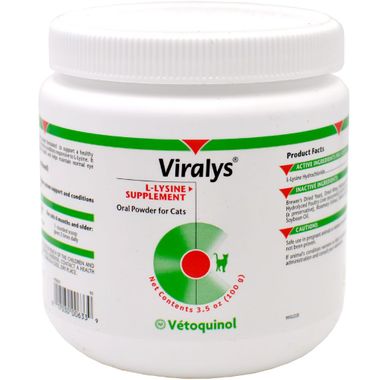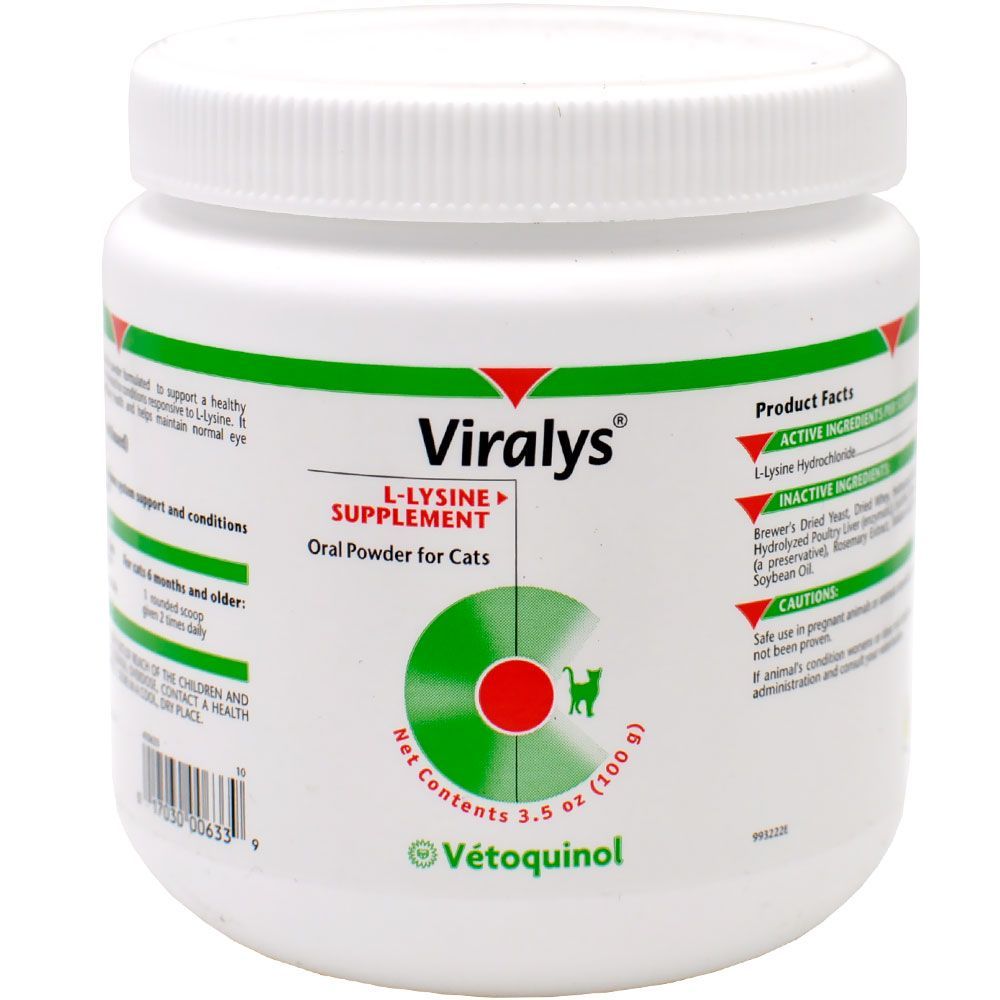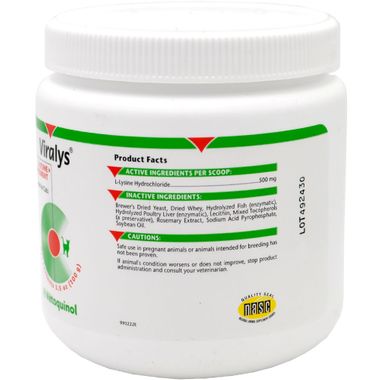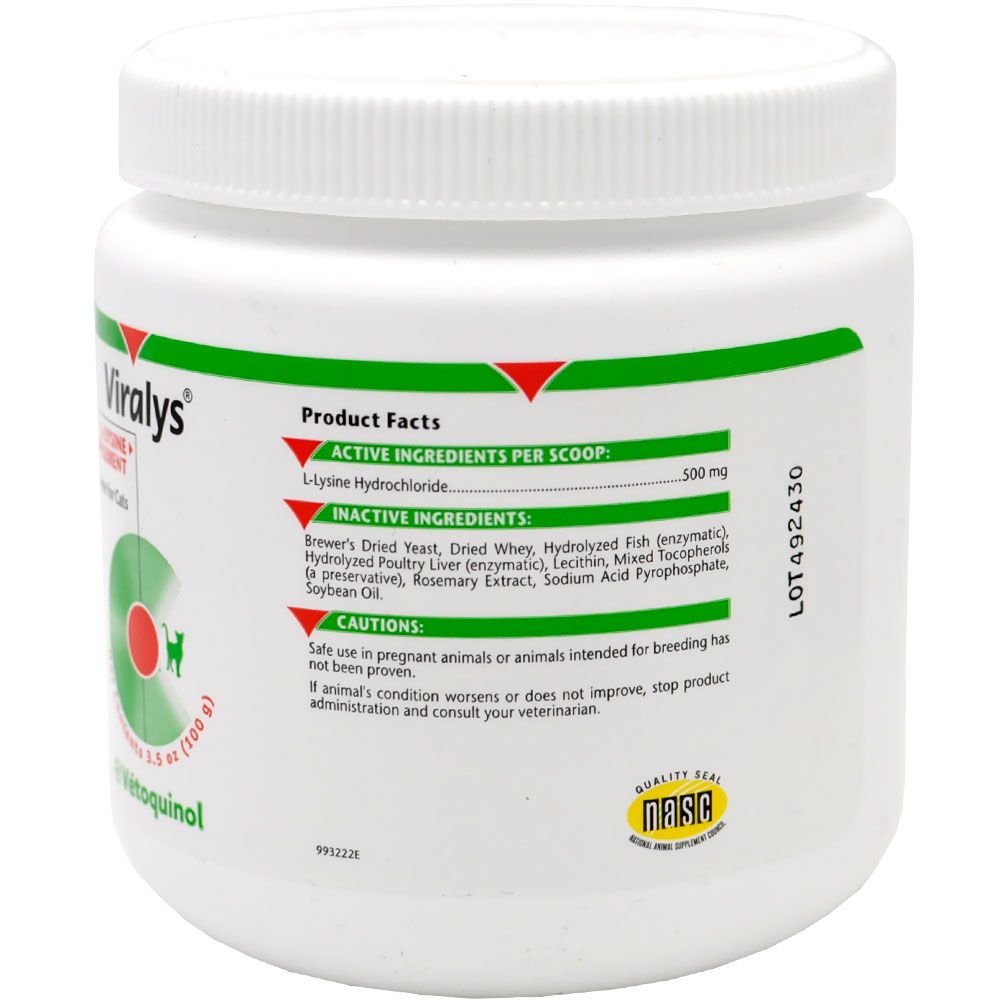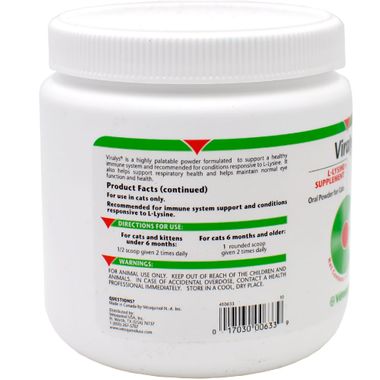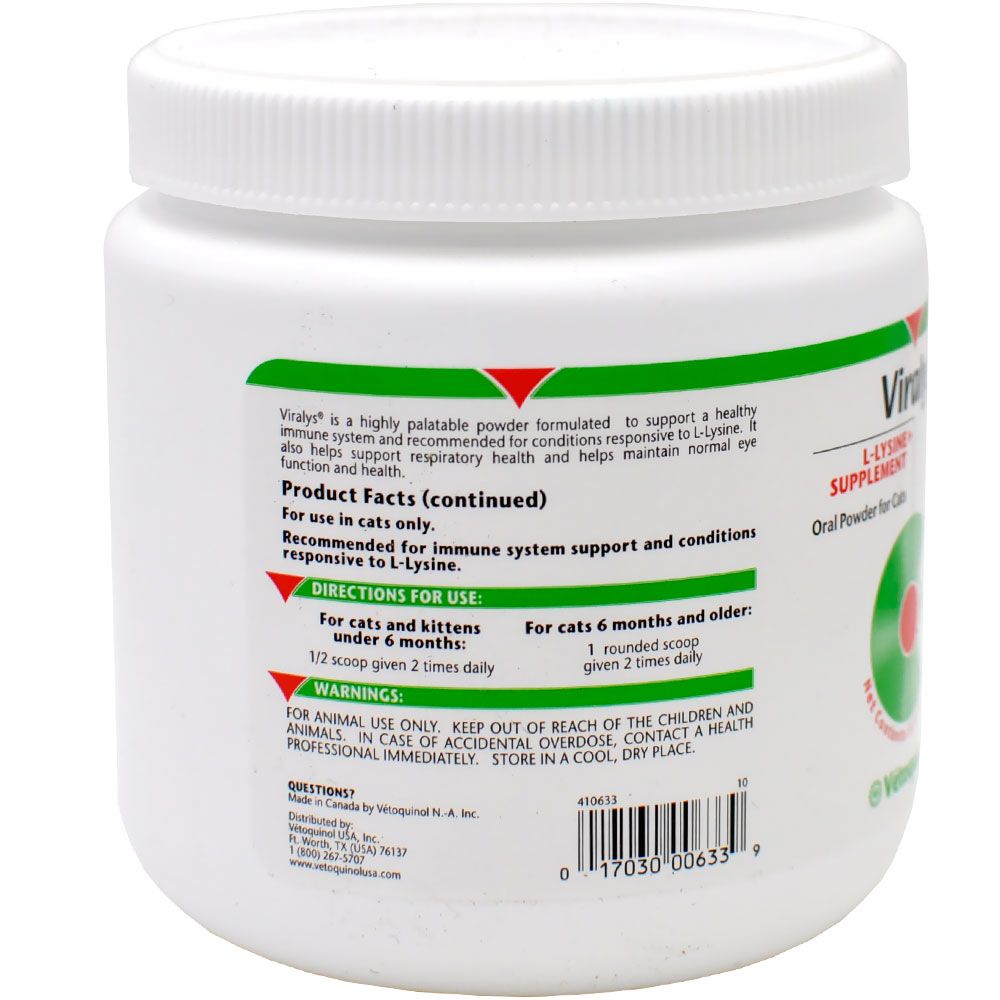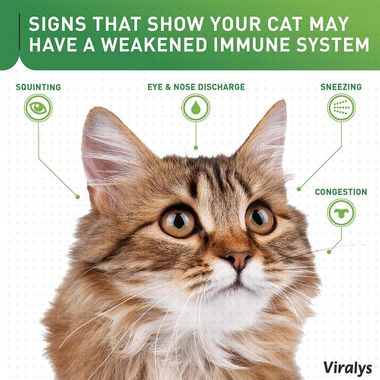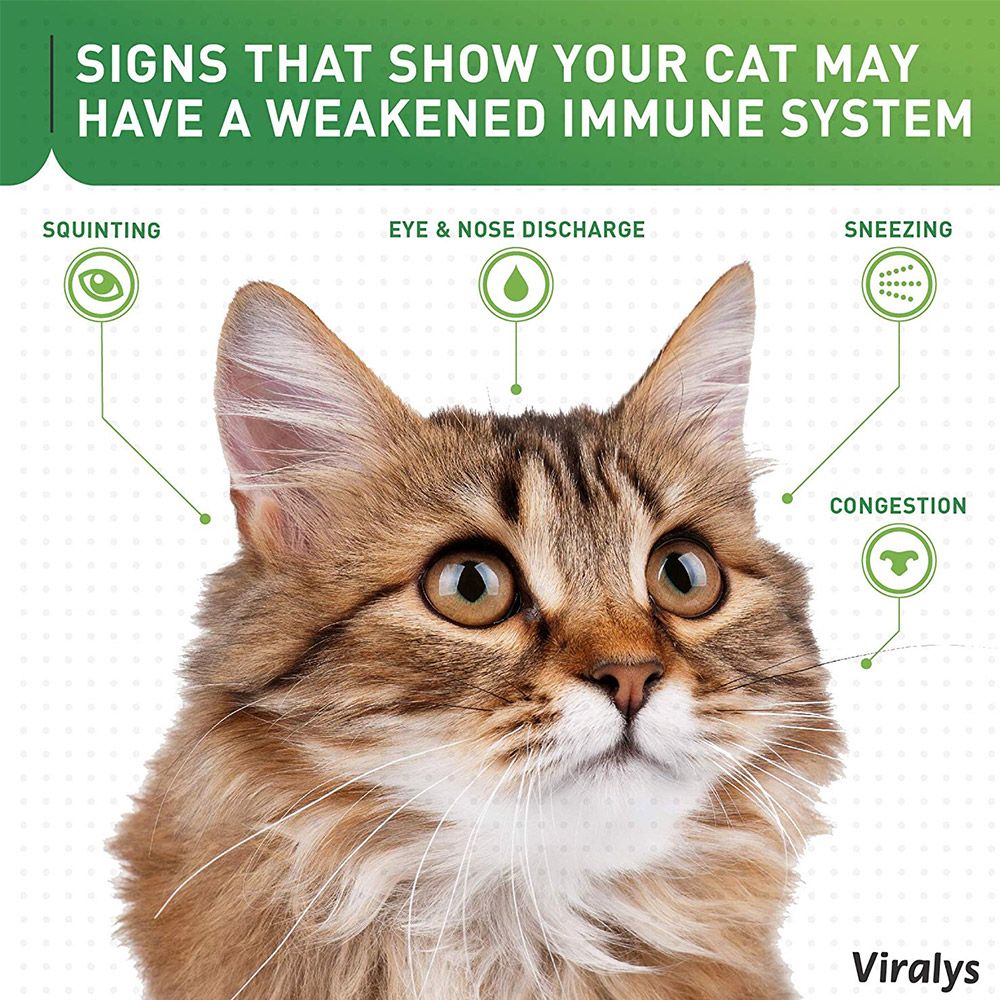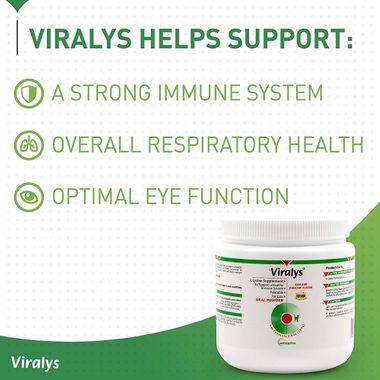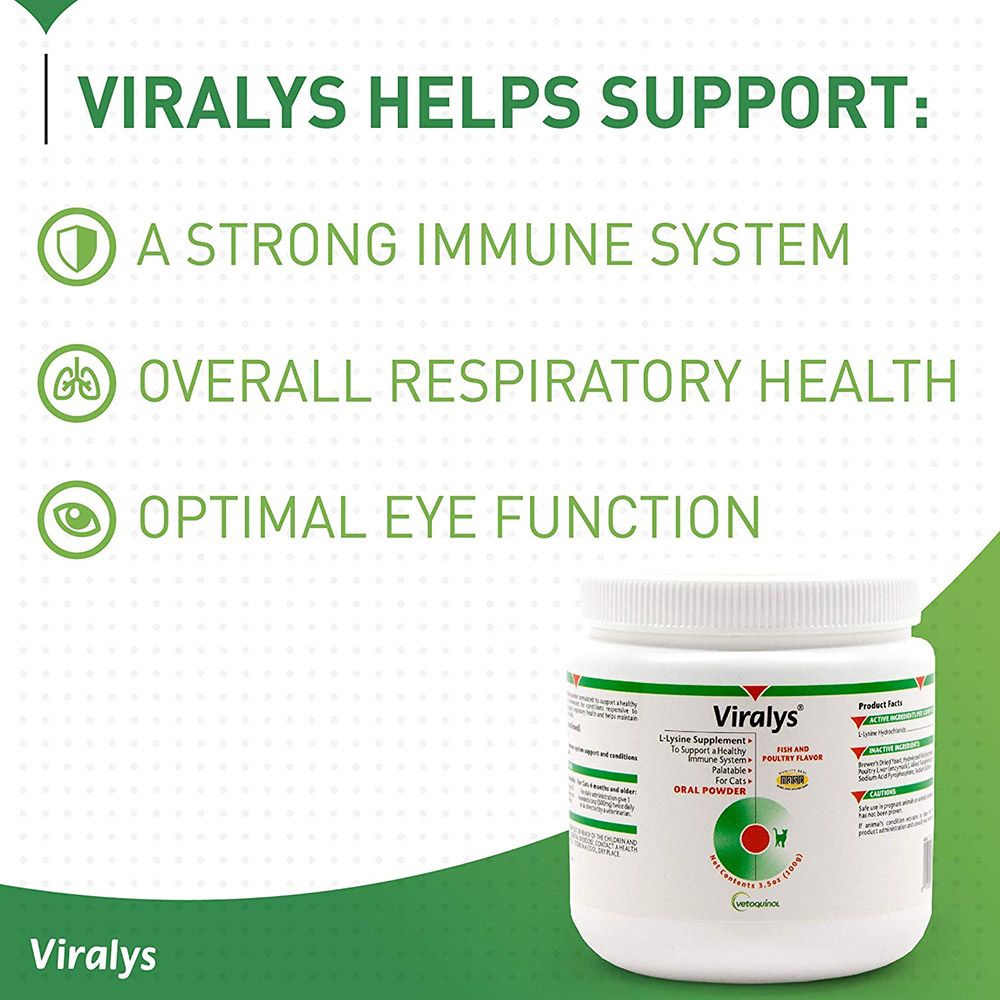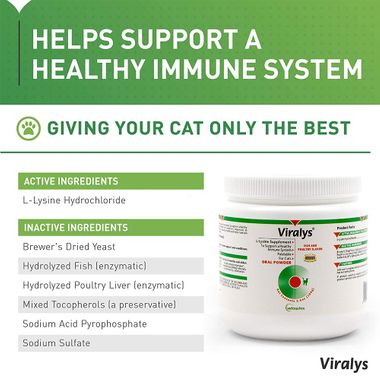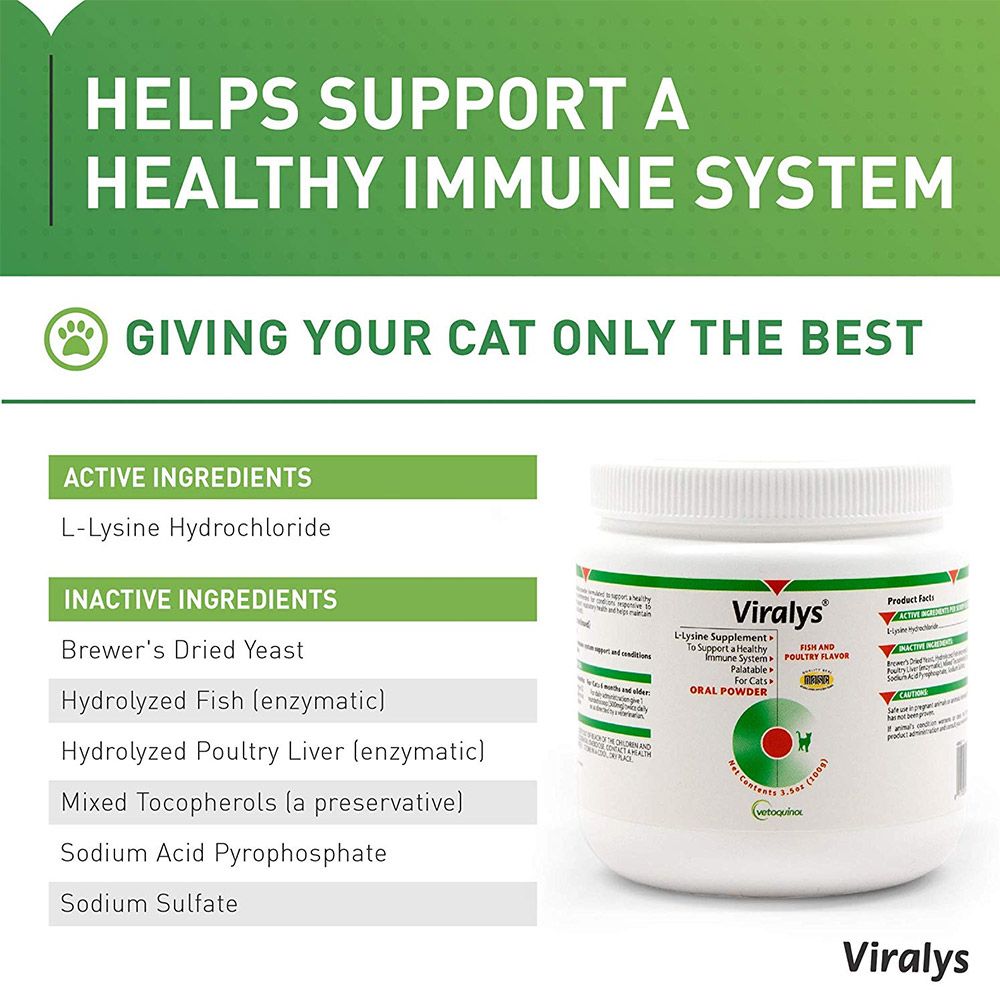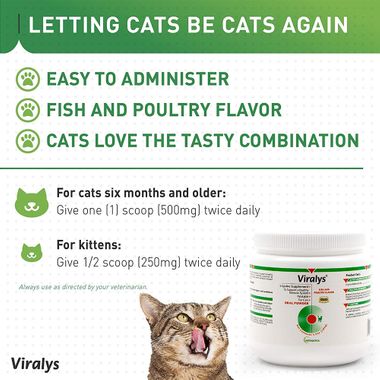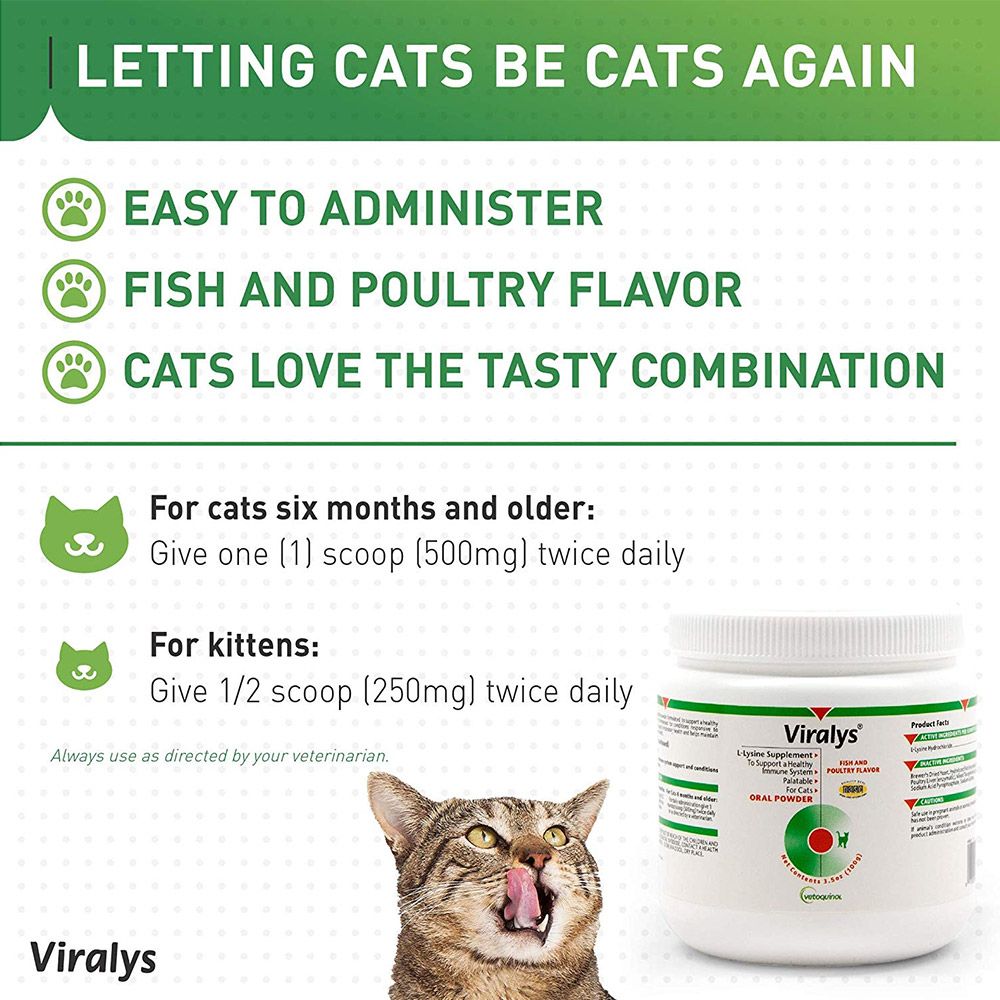SAVE 20% OFF 20% OFF Use Code PREZ20 *
Vetoquinol Viralys (L-Lysine for Cats) Powder (100 grams)
- Description
- Ingredients
- Directions
- Reviews
Description
Viralys L-Lysine for Cats by Vetoquinol is a palatable dietary supplement designed to support cats suffering from feline herpesvirus (FHV-1). This easy-to-administer powder helps relieve common symptoms associated with feline herpes, including respiratory issues and ocular discharge.
Product Description
This highly effective L-Lysine supplement supports your cat’s immune system and helps reduce the frequency and severity of herpes virus outbreaks. Viralys is ideal for cats experiencing nasal congestion, sneezing, eye discharge, and other upper respiratory symptoms caused by FHV-1.
The powder formulation is easy to mix with wet or dry food, ensuring stress-free administration. Its flavor is specifically formulated to be appealing to cats, encouraging consistent intake without hassle.
Key Benefits
- Supports immune system health in cats and kittens
- Helps manage symptoms of feline herpes virus (FHV-1)
- Relieves sneezing, nasal discharge, and watery eyes
- Easy-to-administer powder mixes with food
- Highly palatable formulation encourages regular intake
- Ideal for daily use to reduce the severity and frequency of outbreaks
Indications
Viralys is indicated for use in cats and kittens as a supplement to help support a healthy immune response and manage feline herpesvirus (FHV-1) symptoms, including upper respiratory tract issues and eye discharge.
Ingredients
| Ingredient Type | Ingredient Name | Amount per Scoop (0.52 g) |
|---|---|---|
| Active | L-Lysine Hydrochloride | 500 mg |
| Inactive | Brewer’s Dried Yeast | – |
| Inactive | Hydrolyzed Fish (enzymatic) | – |
| Inactive | Hydrolyzed Poultry Liver (enzymatic) | – |
| Inactive | Mixed Tocopherols (preservative) | – |
| Inactive | Sodium Acid Pyrophosphate | – |
| Inactive | Sodium Sulfate | – |
Directions
Feline Herpes Virus in Cats: Causes, Symptoms, and Treatment
What is Feline Herpes Virus?
Feline Herpesvirus (FHV-1), also known as feline viral rhinotracheitis, is a common upper respiratory infection in cats. It primarily affects the nasal passages, eyes, and throat, and is especially prevalent in multi-cat environments, shelters, or homes where new cats are frequently introduced. The virus spreads through airborne particles and direct contact, replicating in the upper respiratory tract and conjunctiva, leading to inflammation and discharge.
Common clinical signs include sneezing, nasal discharge, and eye inflammation (conjunctivitis). In kittens, it may cause permanent eye damage such as eyelid adhesions. Adult cats may experience recurrent flare-ups, including corneal ulcers or eye inflammation, especially during times of stress or exposure to new viral strains. The virus remains dormant in the nerves and may reactivate periodically.
How is Feline Herpesvirus Transmitted?
Most cats are infected as kittens, usually contracting the virus from their mother. Stray cats, shelter cats, and cats in multi-cat households are at greater risk. Feline herpesvirus is species-specific and does not spread to humans or dogs.
Diagnosing Feline Herpesvirus
Diagnosis is typically based on history and clinical signs. Additional diagnostic methods may include:
- Virus isolation
- Polymerase chain reaction (PCR) testing
- Immunofluorescent antibody tests
- Serology and cytology
- Ocular tests (e.g., Schirmer tear test, corneal staining, conjunctival biopsy)
Treatment for Feline Herpesvirus
Treatment focuses on managing symptoms and secondary infections. Topical or systemic antibiotics (e.g., tetracycline or erythromycin) may be prescribed. Many veterinarians recommend L-Lysine supplementation at 250–500 mg twice daily. L-Lysine helps reduce viral replication by competing with the amino acid arginine, which the virus requires to reproduce.
Other treatments may include:
- Topical antiviral medications
- Non-steroidal anti-inflammatory eye drops
- Topical polysulfated glycosaminoglycans
- Topical interferon
- Surgical correction for severe ocular lesions
Minimizing stress and maintaining a stable, low-risk environment can reduce the frequency of outbreaks. Periodic flare-ups are common and may require ongoing treatment.
Administration of L-Lysine
Each rounded scoop contains: ~500 mg of L-Lysine Hydrochloride in a palatable base.
- Cats over 6 months: One rounded scoop orally, twice daily
- Kittens under 6 months: Half scoop orally, twice daily
- Adjust dosage as directed by your veterinarian
Recommended Use
For use in cats and kittens as a nutritional supplement to support a healthy immune system and manage conditions responsive to lysine, including feline herpesvirus.
WARNING: Keep out of reach of children.
Reviews
- best supply and price on the net








